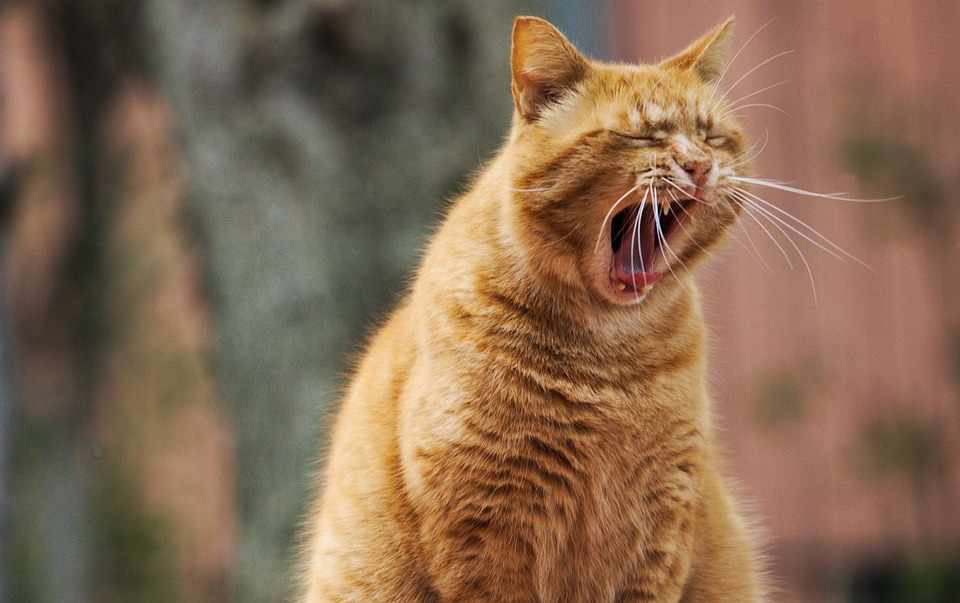Introduction:
Understanding the Impact of Diet on Cat Obesity
Cat obesity is a growing concern among pet owners and veterinarians. Just like humans, cats can also struggle with weight gain and its associated health risks. While genetics and lifestyle factors play a role, diet is a key component in managing a cat’s weight. This article will explore the connection between diet and cat obesity, provide guidance on choosing the right diet for your cat, discuss portion control, macronutrient balance, the use of dietary supplements, and address frequently asked questions about cat obesity and diet.
Heading 1: The Connection Between Diet and Cat Obesity
Sub-heading 1.1: Understanding Cat Obesity
Obesity in cats is defined as an excess accumulation of body fat. It can lead to various health issues such as diabetes, arthritis, cardiovascular disease, and a shortened lifespan. Identifying the signs of obesity, such as difficulty in feeling the ribs or a lack of visible waist, is crucial in addressing the problem.
Sub-heading 1.2: The Role of Diet in Cat Obesity
Diet plays a significant role in a cat’s weight management. Feeding cats a high-calorie diet or overfeeding them can contribute to weight gain. The type of food, portion sizes, and macronutrient balance all play a role in maintaining a healthy weight for cats.
Heading 2: Choosing the Right Diet for Your Cat
Sub-heading 2.1: Understanding Nutritional Needs
Cats have unique nutritional requirements that differ from other animals. They are obligate carnivores and require a diet that is high in animal protein. Understanding their nutritional needs is essential in selecting the right diet for your cat’s overall health and weight management.
Sub-heading 2.2: Evaluating Commercial Cat Food
Commercial cat foods come in a variety of options, including dry kibble, wet food, and specialized diets for weight management. Understanding how to read and evaluate the ingredient list and nutritional information can help pet owners make informed choices when selecting commercial cat food.
Sub-heading 2.3: Homemade Diets for Cats
Some pet owners opt to prepare homemade diets for their cats. While this can provide more control over ingredients, it is essential to ensure that homemade diets are nutritionally balanced and meet the cat’s specific needs. Consulting with a veterinarian or veterinary nutritionist is recommended when considering a homemade diet.
Heading 3: Managing Portion Sizes
Sub-heading 3.1: Portion Control Guidelines
Portion control is crucial in managing a cat’s weight. Guidelines for portion sizes depend on factors such as the cat’s age, activity level, and overall health. Understanding these guidelines and adjusting portions accordingly can help maintain a healthy weight for your cat.
Sub-heading 3.2: The Importance of Measuring Food
Measuring food accurately is essential in portion control. Estimating portion sizes can lead to overfeeding. Using a kitchen scale or measuring cups can help ensure that your cat is receiving the appropriate amount of food.
Sub-heading 3.3: Treats and Snacks: Moderation is Key
Treats and snacks can contribute to weight gain if given excessively. Choosing low-calorie treats and limiting their quantity is crucial in maintaining a healthy weight. Treats should not exceed 10% of a cat’s daily caloric intake.
Heading 4: Balancing Macronutrients
Sub-heading 4.1: Protein: The Foundation of a Healthy Diet
Protein is an essential macronutrient for cats. It provides the necessary amino acids for growth, repair, and maintaining muscle mass. Choosing cat foods with high-quality animal protein sources is important for weight management.
Sub-heading 4.2: The Role of Fats in Cat Nutrition
Fats are a concentrated source of energy in a cat’s diet. While essential, excessive fat intake can lead to weight gain. Selecting cat foods with moderate fat content is recommended for weight management.
Sub-heading 4.3: Carbohydrates: Friend or Foe?
Cats have a limited ability to digest and utilize carbohydrates. While a small amount of carbohydrates can be included in their diet for energy, excessive carbohydrate consumption can contribute to weight gain. Opting for cat foods with low carbohydrate content is advisable for weight management.
Heading 5: Dietary Supplements for Weight Management
Sub-heading 5.1: Understanding Weight Management Supplements
Weight management supplements can aid in cat obesity by promoting satiety, increasing metabolism, or supporting fat metabolism. However, consulting with a veterinarian is crucial before incorporating any supplements into a cat’s diet.
Sub-heading 5.2: Common Supplements Used for Cat Obesity
Common weight management supplements for cats include fiber supplements, omega-3 fatty acids, and L-carnitine. Each supplement has its unique benefits and considerations. Understanding their effects and consulting with a veterinarian can help determine if they are suitable for your cat.
Heading 6: FAQs about Cat Obesity and Diet
Frequently Asked Questions (FAQs)
FAQ 1: How do I determine if my cat is overweight?
FAQ 2: Can I feed my cat a raw food diet to help with weight loss?
FAQ 3: Are there specific cat food brands that are better for weight management?
FAQ 4: How often should I feed my cat to help with weight loss?
FAQ 5: Can I feed my cat human food as a weight loss strategy?
Conclusion:
Striking the Right Balance for Cat Obesity through Diet
Managing a cat’s weight requires a comprehensive approach that includes understanding the role of diet, choosing the right food, managing portion sizes, balancing macronutrients, and considering the use of dietary supplements. By finding the right balance and working closely with a veterinarian, pet owners can help their cats achieve and maintain a healthy weight, promoting overall well-being and longevity.








